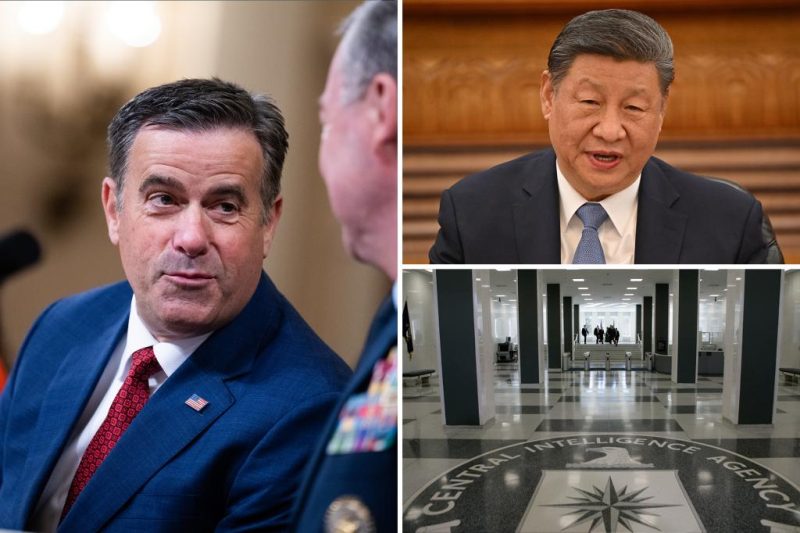
A newly revealed internal CIA memo from 2025 exposes then-Director John Ratcliffe’s urgent warnings about China’s escalating military, technological, and economic threats. Just two days before President Trump launched his trade war with Beijing, Ratcliffe emphasized the CCP’s ambition for global dominance, declaring it the agency’s top priority.
Ratcliffe’s memo, dated March 31st, 2025, paints a stark picture of China’s intentions. He described the Chinese Communist Party’s (CCP) drive to surpass the US economically, militarily, and technologically as an aggressive, global pursuit. The memo underscored the CCP as the most formidable challenge ever faced by the United States, surpassing any previous adversary in scale and capability.
Beyond China, Ratcliffe’s memo also addressed threats from Russia, Iran, North Korea, cyber attackers, and terrorist cells. Interestingly, it also mentioned Elon Musk’s involvement with the Department of Government Efficiency (DOGE) in streamlining operations and potential cost-cutting measures, including possible workforce reductions. The memo stressed the creation of a more efficient and elite workforce, emphasizing meritocracy and a laser focus on mission objectives.
Ratcliffe’s emphasis on technological advancement is striking. He urged CIA leaders to take greater risks to maintain a technological edge over China, suggesting the use of AI and quantum computing in partnerships with private contractors to bolster US infrastructure and target adversaries. He emphasized the crucial nature of winning the technology race to secure future global leadership.
The memo’s release comes amidst heightened tensions between the US and China. The timing is significant, given that it predates President Trump’s decision to pause his global tariffs on most nations except China. Trump substantially increased tariffs on Chinese goods, a move met with retaliatory tariffs from China, escalating an already tense trade relationship. Ratcliffe’s memo highlighted the importance of stemming the flow of deadly narcotics into the US, aligning with the Trump administration’s focus on combating transnational criminal organizations and cartels.
In a separate but related development, the Trump administration, using the Alien Enemies Act, deported hundreds of alleged Tren de Aragua gang members to a mega-prison in El Salvador. This action, initially challenged in court, was ultimately approved by the Supreme Court, adding another layer to the complex geopolitical landscape.
Ratcliffe’s pre-trade war memo provides a fascinating glimpse into the internal thinking within the CIA during a period of significant geopolitical upheaval. It highlights not only the perceived threat posed by China, but also the broader strategic challenges facing the US and the agency’s role in navigating this complex and increasingly volatile environment.










